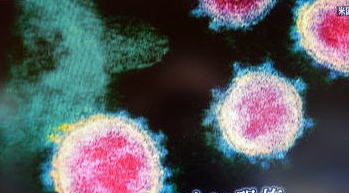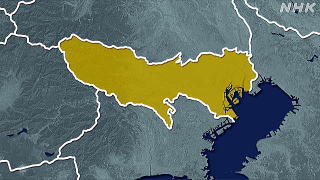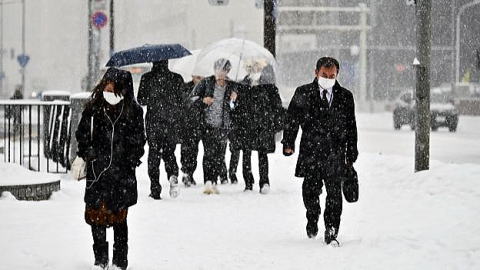Japanese government lacks a sense of crisis to the coronavirus.
A conflict between the national and Tokyo Metropolitan governments on the timing and the types of businesses
that would be subject to a request to suspend operations surfaced following Prime Minister Shinzo Abe's declaration
of a state of emergency in Tokyo and six other prefectures due to the novel coronavirus.
The metropolitan government had planned to announce a request that members of the public refrain from going
out, as well as that a wide range of businesses suspend operations at the same time as the state of emergency
declaration on April 7. However, the national government was concerned about the stagnation of economic activity,
and sought to narrow the types of businesses that would be subject to suspension requests, and to hold off on
them altogether until the effects of stay-at-home requests could be seen.
If this were done properly, talks between the national and Tokyo governments would have been settled before
a state of emergency was declared. It can only be said that the two parties lacked appropriate communication.
Due to this holdup, three days lapsed since the declaration, during which the number of people infected with
the virus continued to rise.
The reason the central government took the step of declaring a state of emergency must have been because it deemed
there was a need to take measures to prevent the spread of the virus even if it meant placing certain restrictions on
economic and social activities. Trying to keep its anti-virus measures at the level of stay-at-home requests lacks policy
consistency.
Prime Minister Abe said, "If we can cut back person-to-person contact by 80%, the number of people infected with
the virus could go into decline after two weeks." It is questionable whether this goal is achievable with the state's
passive attitude. The governors of other prefectures that are under the state of emergency have deferred decisions
on asking businesses to suspend operations. Kanagawa Gov. Yuji Kuroiwa said, "We can't proceed
(with the business closure request) unless financial aids by the state come as a set.
"The Tokyo metro government says it will set up a "prevention of the spread of infection cooperation money" fund for
businesses who cooperated with its request to halt operations. Other prefectures, on the other hand, do not have those
kinds of financial capabilities. It would be like putting the cart before the horse if the national government's reluctance
to provide sufficient financial support forces prefectural governments to shirk asking businesses to suspend operations.
The national government has not changed its plans of not offering individual compensation for businesses that close
temporarily, and is instead planning to handle the situation by providing benefits to business operators whose incomes
have dropped substantially. One reason is that there is no stipulation for compensation in the newly enacted revised law
for the novel coronavirus.
In that case, why doesn't the central government establish a system like Tokyo's "cooperation money" fund and create
a base that functions as an underlying support mechanism.
If the Japanese government is counting on a call on the public to refrain from going out to stop the spread of infection,
it lacks a sense of crisis. It must communicate with each prefecture under the state of emergency and act as soon as
possible.
source: The Mainichi 2020.4.10
Editorial: Japan gov't lacks sense of crisis, feuded with Tokyo on coronavirus policy.
Japan virus cases have doubled since emergency declared, says health minister.
Health minister Kato said April 14, that the number of people infected with COVID-19 in Japan had doubled in the week
since the government declared a state of emergency over the epidemic, on April 7. gPatient numbers have doubled in
Tokyo, in the seven prefectures (subject to the emergency declaration) and nationwide.h Kato said in a news conference
after a Cabinet meeting. The minister pointed out that some 70 percent of cases in the week occurred in the seven
prefectures covered by the emergency declaration - Tokyo, Saitama, Chiba, Kanagawa, Osaka, Hyogo and Fukuoka.
gWe need to look at the situation in the medium-to-long term. h Kato said, noting days in which the number of new
infections seemed to have stopped growing. gIt is not appropriate to look at the numbers on a day-by-day basis.
hTokyo Metropolitan Government confirmed 161 cases of COVID-19 on April 14, bring the total number of infections
in the capital to 2,319.
I can't agree with this view. Junhaku Miyamoto, M.D.,PhD.
Source: Jiji,Kyodo 2020.4.14
Coronavirus lockdown: Lessons from Hokkaido's second wave of infections
@@In just 26 days after the state of emergency was lifted, a new one has had to be imposed. BBC April 16,2020
https://twitter.com/worldviewtokyo
2021N4æèXVð~


